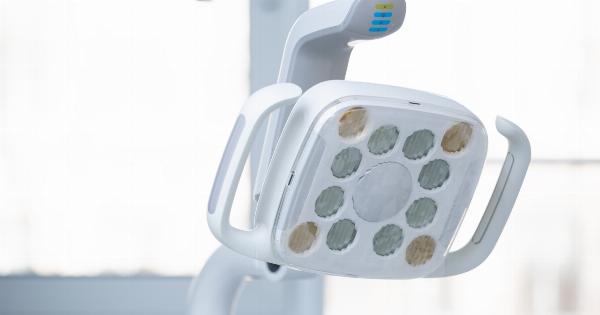In recent years, the UK has experienced a rise in the number of private finance initiative (PFI) schemes being implemented in various aspects of public services.
As a result, many of the country’s healthcare services, including dentistry, are being operated and managed by private firms, rather than by the National Health Service (NHS).
While the PFI model has brought about some benefits, such as new and modern facilities, it has also come with several challenges.
One of the key issues is the absence of dental prevention in PFI-controlled dentistry, which has had a significant impact on patients’ oral health.
What is PFI?
PFI is a model that has been used by the UK government since the 1990s to raise funds for large-scale infrastructure projects, such as hospitals, schools, and roads.
Under this model, a private company is contracted to finance, design, build, and operate a facility for a set period of time, usually 25-30 years. The government pays the company an annual fee, which includes the cost of construction and maintenance, plus a profit margin.
PFI and Dentistry
The PFI model has been applied to some dental services, particularly in primary care, where private companies have been contracted to operate and manage dental clinics on behalf of the NHS.
These companies are responsible for providing a range of services, from routine check-ups to more complex treatments such as crowns and bridges.
However, one of the downsides of the PFI model in dentistry is the focus on treatment rather than prevention.
Private companies are incentivized to prioritize revenue-generating services, such as fillings and extractions, over preventative measures like check-ups and oral health education. This has led to a situation where patients often receive treatment for dental problems only when they are in a more advanced stage, rather than having them detected and treated earlier through regular check-ups.
The Importance of Prevention in Dentistry
Dental prevention is an essential aspect of oral health care. Regular check-ups and cleanings are necessary to detect and treat dental problems early on, before they escalate into more serious conditions.
Prevention also entails educating patients on proper oral hygiene practices, such as brushing and flossing, to maintain healthy teeth and gums.
Without adequate prevention, dental problems can become more complex, expensive, and painful to treat.
For instance, a small cavity that could have been addressed with a filling may turn into a larger cavity that requires a root canal or even tooth extraction. This not only affects patients’ oral health but also puts a strain on healthcare resources.
The Impact of PFI-Controlled Dentistry on Patients
The lack of emphasis on prevention in PFI-controlled dentistry has had several negative consequences for patients.
Firstly, patients often have to wait longer for appointments, as the focus is on treating existing problems rather than preventing new ones. This means that smaller problems can worsen while patients wait for a slot to open.
Secondly, patients are often referred for specialist treatment, such as periodontal therapy, at a later stage than they would with regular check-ups.
This can lead to more complex and expensive treatment requirements, as well as longer recovery periods for the patient.
Finally, the absence of prevention in PFI-controlled dentistry has led to an increase in dental health inequalities.
Patients from disadvantaged backgrounds, who may not be able to afford private dental care, tend to have poorer oral health outcomes due to limited access to preventative services. This disparity is a significant concern, as it contributes to wider health inequality in society.
Conclusion
The shift towards private finance initiative schemes in dentistry has altered the focus from prevention to treatment, resulting in negative implications for patients’ oral health.
Without adequate prevention, dental problems can become more complex and expensive to treat, highlighting the importance of early detection and treatment. The absence of prevention has lengthened waiting times for appointments and led to more complex and expensive treatments. Dental health inequalities have also increased.
As PFI schemes continue to be implemented, it is essential to prioritize prevention as a crucial aspect of oral healthcare.




























